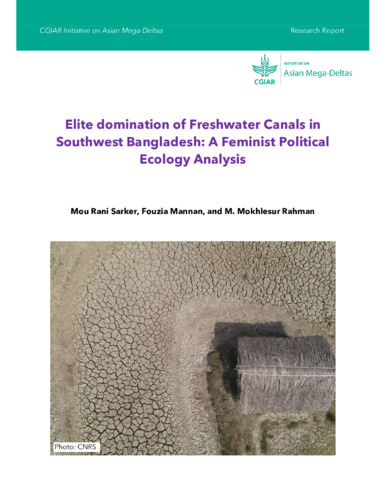Elite domination of Freshwater Canals in Southwest Bangladesh: A Feminist Political Ecology Analysis
Abstract
Freshwater canals - the drainage peripheries of large rivers are the lifeline to water access and availability for crop, livestock, and fish production and processing for large numbers of smallholder farmers in southwestern Bangladesh, who grapple with severe challenges of saline water intrusion and waterlogging in the region. However, these canals are mostly under the control of local and external elites who hold long-term leases to exclusive rights and use, even though legislation, in principle, disallows the leasing of flowing streams of water. Our recent research in two villages in the Satkhira district of Bangladesh reveal that elite capture of freshwater resources are longstanding challenges which impact most marginalized smallholder farmers and women who rely entirely on agri-food systems-related livelihoods. Canal water capture results in food insecurity, lack of dietary diversity, and increases economic inequalities, also resulting in seasonal and longer-term migration of able-bodied men in these locations. Analyzing these challenges with a Feminist Political Ecology (FPE) framework, our study identifies that patrimonial power dynamics across institutional levels shape processes of water appropriation. The widespread illegal capture of these canals has far reaching gendered outcomes which can only be reversed by tackling power structures at scale.

